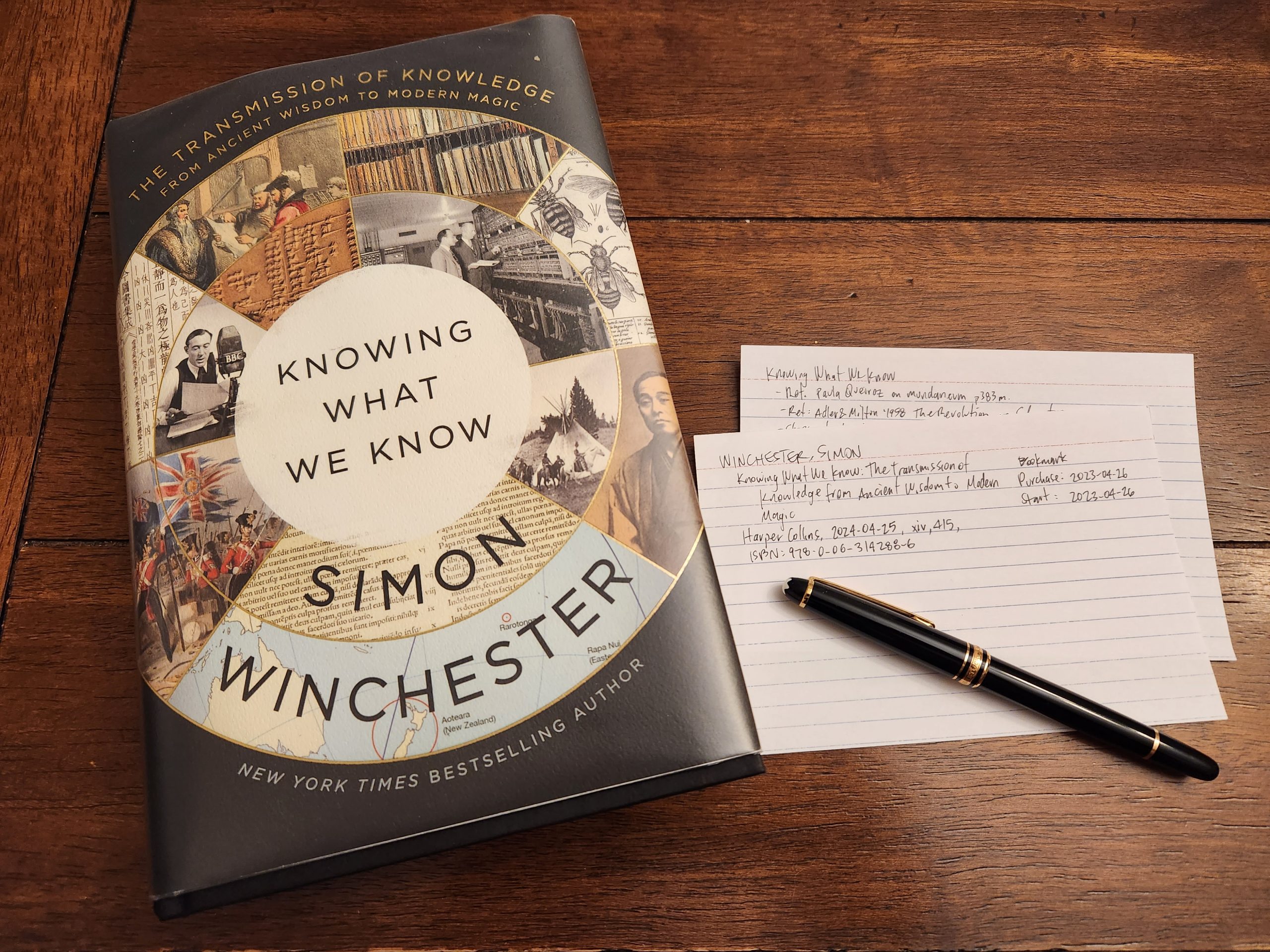In case some haven't been watching, I'll mention that Simon Winchester's new book Knowing What We Know on knowledge to transmission was published by Harper on April 25th in North America. For zettelkasten fans, you'll note that it has some familiar references and suggested readings including by our friends Markus Krajewski, Ann Blair, Iaian McGilchrist, Alex Wright, Anthony Grafton, Dennis Duncan, and Mortimer J. Adler to name but a few.
Many are certain to know his award winning 1998 book The Professor and the Madman which was also transformed into the eponymous 2019 film starring Sean Penn. Though he didn't use the German word zettelkasten in the book, he tells the story of philologist James Murray's late 1800s collaborative 6 million+ slip box collection of words and sentences which when edited into a text is better known today as the Oxford English Dictionary.
If you need some additional motivation to check out his book, I'll use the fact that Winchester, as a writer, is one of the most talented non-linear storytellers I've ever come across, something which many who focus on zettelkasten output may have a keen interest in studying.

Syndication Link: https://forum.zettelkasten.de/discussion/2558/knowing-what-we-know-the-transmission-of-knowledge-from-ancient-wisdom-to-modern-magic/p1?new=1


 Created with Snagit....What is Simon's Summer.
Created with Snagit....What is Simon's Summer.